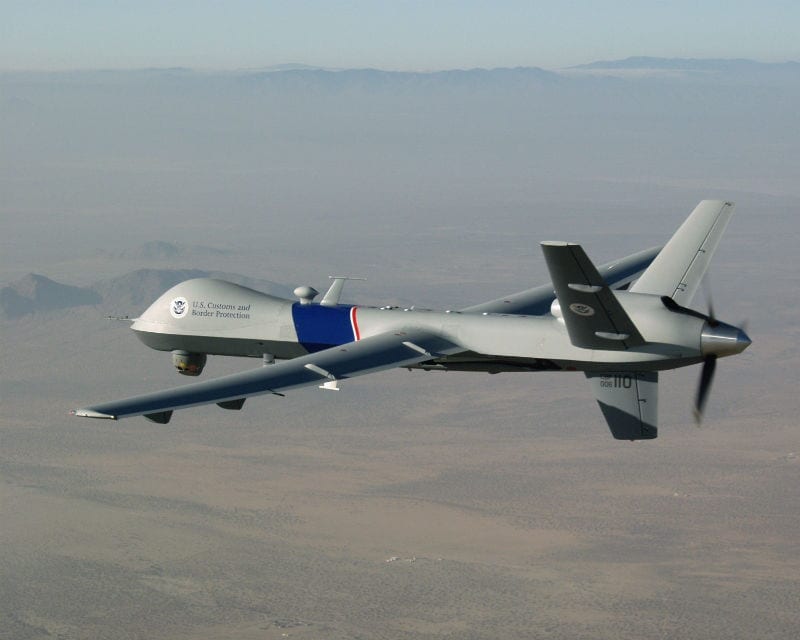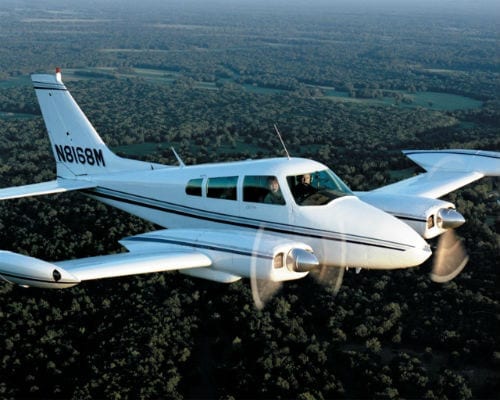Posts

The IFR conundrum: is it as it appears?
Dick's blogBack in the good old days, there was a lot of scud running and not much real IFR. A lot of us thought that the best way to improve the general aviation safety picture would be to get more people into IFR flying. But one of life’s simplest pleasures comes in realizing that you were wrong about something and that is true here.

The ultimate responsibility: thoughts on family flying
Dick's blogAfter the tragic crash of a Pilatus PC-12 in Florida, Richard Collins reflects on flying with family. He says, "One of the reasons I became such a weather geek over the years was if I was going to fly my family in clouds, I was going to understand everything there was to know about those clouds." Does flying with family change the way you fly?

The coming currency crisis
John's blogAre you flying enough these days? Based on the pilots I talk to, the answer for most people is a resounding “no!” This goes far beyond the old joke that there’s no such thing as too much flying. Below a certain level of activity, both pilot proficiency and airplane reliability suffer, leading to thinner safety margins and a whole lot less fun.

What was wrong with V-tail Bonanza pilots?
Dick's blogI sort of stirred up a hornet’s nest with a recent post about Cirrus airplanes and Cirrus pilots. A few commenters compared the discussion with ones about the Beech V-tail (Model 35) Bonanzas a long time ago. That airplane was actually referred to by many as the “V-tail doctor killer” back in its heyday. As with the Cirrus, the problem was more with pilots than with the airplane.

Is flying safe? Wrong question.
John's blogThe real takeaway here--for student pilots and old pros alike--is simple: flying is as safe as you want to make it. You as the pilot in command control how safe you are, not the airplane (nor anyone else, for that matter). Unlike driving, drunks and 16 year-olds can’t kill you in the air by swerving into you. That’s a good thing if used properly.

The Great Debate: are UAVs a threat?
DebateNew legislation raises numerous questions about unmanned aerial vehicles (UAVs), most of which are unanswered at this point. How will UAVs "see and avoid" piloted airplanes? What type of airspace will drones be flying in? What is ATC's role? What are the limitations on who can operate a UAV? Add your opinion.

What’s wrong with Cirrus pilots?
Dick's blogDespite all the safety features it has, from a glass cockpit to a whole airframe parachute, the Cirrus SR-22 has a higher fatal accident rate than most similar airplanes from other manufacturers. Why has this come to be true? It can only be because of one thing: the Cirrus pilot.

The Great Debate: pilots are just backup
DebateThe CEO of the Flight Safety Foundation recently remarked, "Five years ago we passed the point where automation was there to back up pilots... Clearly, today, the pilot is there to be the backup to the automation... This is simply a realistic assessment of the world today." It's a bold statement--do you agree? Add your comments.

Mr. Invincible
I was thereWell I finally met that guy. That guy everyone has read about. That guy who seems to be at every airport. That guy whom no one admits to being. You know, the guy who willfully violates significant federal aviation regulations and openly brags to total strangers about his near death experiences.

Do you cancel too many flights?
John's blogSome instrument pilots apparently are uncomfortable in anything less than clear skies and unlimited visibility. It raises the question: do you cancel too many flights? Has the aviation community beaten everyone over the head with the risk management stick so much that they’re gun shy? From what I read and hear, I think it’s quite possible.

Considering a twin
OpinionIt's the eternal debate: are twins safer than singles? This author, an experienced multiengine CFI, says yes--but only if you're willing to make a serious commitment to safety. Read his prescription for safer twin flying.

Dick’s blog: there are only good questions
Dick's blogIs it possible to know at all times what you’re doing when you’re flying? It is not only possible to know exactly what you are doing at all times, it is required. Put another way, right before every accident a pilot is flying without knowing everything that is going on in, with, around and about his airplane.

The Great Debate: dangerous pilots
DebateThere has been a lively discussion among Air Facts readers about unsafe pilots and what our responsibility is to stop them. But this begs the question: what exactly does it mean to be "unsafe?" In particular, what is the single most dangerous personality trait in a pilot?

The Great Debate: too old to fly
Dick's blogWe have had the debate on pilot age and it goes on. For this one we are talking about airplanes. Will our fleet of older airplanes fly on for five more years? Ten? Forever? Do you feel as comfortable about mechanical reliability in an older airplane as in a newer one?

John’s blog: holiday accidents have a lesson
John's blog We are all salesmen to a certain extent when we fly with family. We want to prove that all the money and time we spend on airplanes is worth it, and brings value to the entire family. But you only have to be wrong once, and the airplane doesn't care if this trip really counts, and it doesn't care if your family is on board.

Going out on top
Dick's blogIn this frank and personal article, Collins says he decided to "stop [flying PIC] with satisfaction" at age 74. His last flight was a good one, but "limiting flights to good weather took all the challenge and fun out of my flying. To me, dealing with inclement weather in light airplanes is one of the most interesting things that a pilot can do."

John’s blog: risk management is a sham
John's blogRisk Management in its current form is a sham, a feel-good phrase that is popular precisely because its meaning is so elastic. Just like “I want better schools” and “I support a strong America,” everyone is in favor of it until it comes time to define what it actually means and how to do it.

50 years ago in Air Facts: Double Trouble?
OpinionIn this groundbreaking article, first published in the July 1965 edition of Air Facts, Richard Collins raised the question--heretical at the time--of whether twin engine airplanes really were any safer than singles. His cogent, well-researched argument started a debate that rages to this day.

The Great Debate: an accident waiting to happen
DebateWe've all heard the phrase, "that pilot is an accident waiting to happen." Do we, as pilots, have a responsibility to do something about these people or should we leave them alone? If we do intervene, what should be done? Confront the pilot? Report them to the FAA? Warn their passengers? And how bad does it have to get before you step in?

The Great Debate: can we “make” flying safer?
DebateThe question relates to whether or not you think we should throw the loose cannons under the bus, accept the current safety record, and fly on with our remaining freedoms intact? Or, should we make changes that might rein in the loose cannons but that would likely swap a lot of freedom for the chance of a better record?
